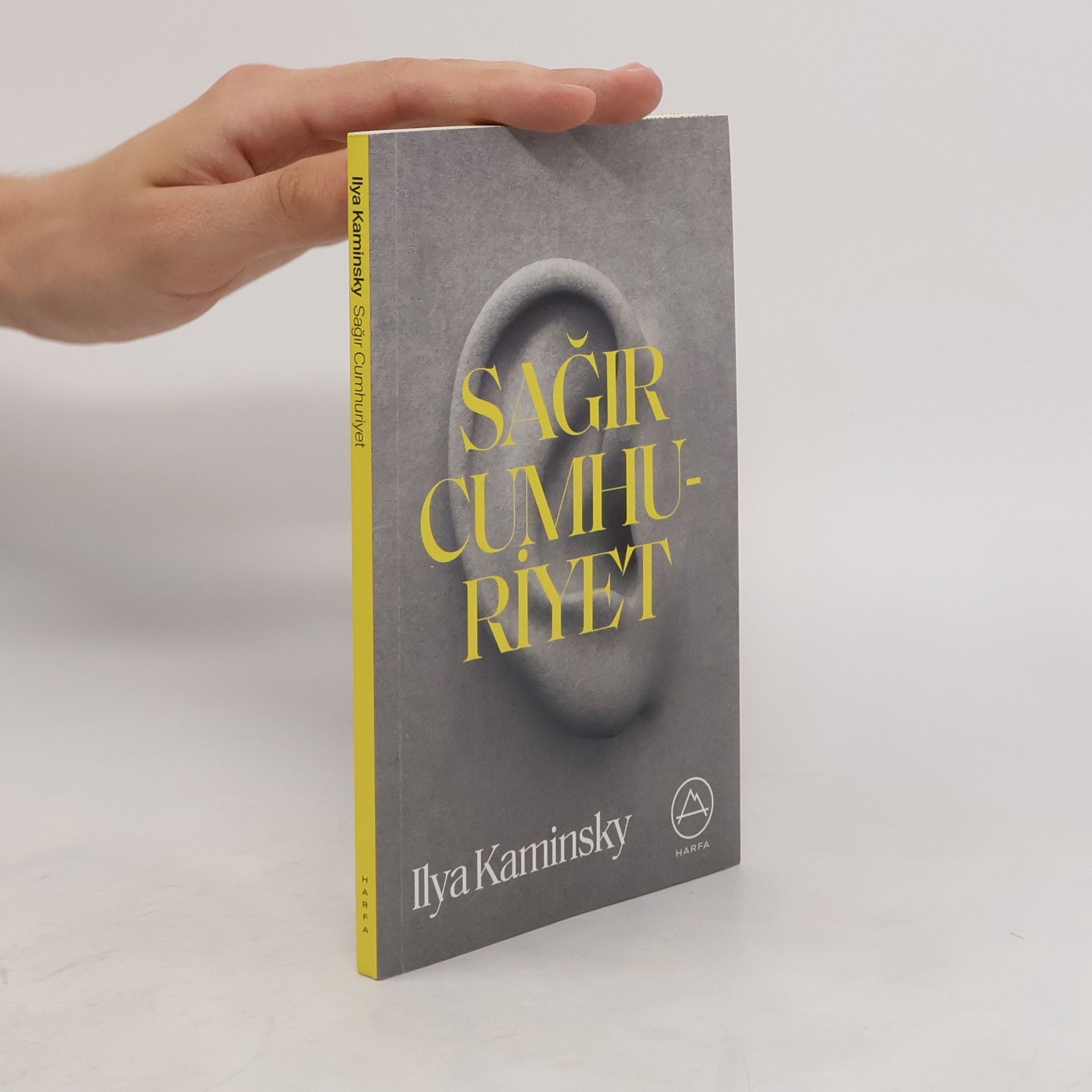Deaf Republic
- 96 stránek
- 4 hodiny čtení
When soldiers breaking up a protest kill a deaf boy, Petya, the gunshot becomes the last thing the citizens hear - all have gone deaf, and their dissent becomes coordinated by sign language.
Ilya Kaminsky je básnický redaktor časopisu Words Without Borders. Jeho díla často zkoumají témata ztráty, paměti a identity skrze inovativní a emocionálně rezonující verše. Jeho jedinečný styl spojuje lyriku s epickými prvky, čímž vytváří působivá literární díla.



When soldiers breaking up a protest kill a deaf boy, Petya, the gunshot becomes the last thing the citizens hear - all have gone deaf, and their dissent becomes coordinated by sign language.
Described as 'a rich, reverberative dance with memories of a haunted city' (LA Times), the poems of the prize-winning debut Dancing in Odessa by Ilya Kaminsky, author of Deaf Republic, draw on archetype, myth and Russian literary figures.
"Sağırlar sessizliğe inanmaz. Sessizlik, işitenlerin icadıdır." Sağır Cumhuriyet, şiirlerle kurulmuş bir tiyatro oyunu gibi okuduğumuz bir mesel. Rus asıllı Amerikalı şair Ilya Kaminsky, üzerinde on beş yıl çalıştığı bu benzersiz kitapta işgal altındaki bir ülkede yaşananların hikâyesini anlatırken şiddet ve baskı karşısındaki sessizliğimiz, sessizliğin türleri, sessiz bırakılmakla sessiz kalmaya karar vermek arasındaki fark üzerine düşünüyor. Kuşatılmış bir kasaba (Vasenka), kasaba meydanında askerlerin vurup öldürdüğü sağır bir çocuk (Petya) ve çocuğu öldüren silah patladığı anda sağırlaşan kasaba halkı. Çocuğun ölümünün ardından kasabaya çöken sessizlikte, sağır halk işaret diliyle bir direniş örgütlemeye başlıyor. Bir taraftan da ilk çocuklarını bekleyen Alfonso-Sonya çiftiyle kasabadaki kukla tiyatrosunun sahibesi Galya Ana'nın hikâyelerini takip ediyoruz. Askerler sağırlığı "salgın hastalık" ilan ediyor, Galya'nın kuklacılarıysa gündüzleri Vasenkalılara işaret dilini öğretip geceleri usulca askerleri öldürüyor. Ama Sağır Cumhuriyet sadece bir ağıt değil, aynı zamanda ümide, direnmeye, yaşama sevincine yazılmış coşkulu bir methiye. Tek bir şiir geleneğinden beslenmediği gibi tek bir duygudan da beslenmeyen Kaminsky, acıyla, şiddetle ve baskıyla beklenmedik, heyecan verici başa çıkma yolları hayal ediyor.